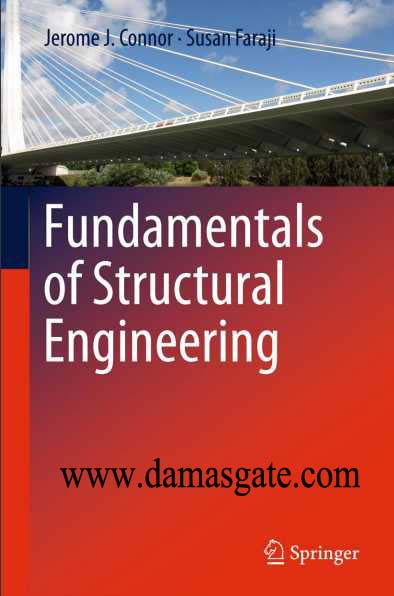Fundamentals of Structural Engineering

Audience
The intended audience of this book is that of students majoring in civil engineering
or architecture who have been exposed to the basic concepts of engineering
mechanics and mechanics of materials. The book is sufficiently comprehensive to
be used for both elementary and higher level undergraduate structures subjects.
In addition, it can serve students as a valuable resource as they study for the
engineering certification examination and as a reference later in their careers.
Practicing professionals will also find the book useful for self-study, for review
for the professional registration examination, and as a reference book.
Motivation
The availability of inexpensive digital computers and user-friendly structural
engineering software has revolutionized the practice of structural engineering.
Engineers now routinely employ computer-based procedures throughout the
various phases of the analysis and design detailing processes. As a result, with
these tools engineers can now deal with more complex structures than in the past.
Given that these tools are now essential in engineering practice, the critical question
facing faculty involved in the teaching of structural engineering is “How the
traditional teaching paradigm should be modified for the computer age?” We
believe that more exposure to computer-based analysis is needed at an early stage
in the course development. However, since the phrase “garbage in garbage out” is
especially relevant for computer-based analysis, we also believe that the student
needs to develop, through formal training in analysis methodology, the ability to
estimate qualitatively the behavior of a structure subjected to a given loading and to
confirm qualitative estimates with some simple manual computations.
Preface
Based on a review of the current structural engineering academic literature, it
appears that the current set of undergraduate textbooks are focused mainly on either
(i) teaching manual analysis methods and applying them to simple idealized
structures or (ii) reformulating structural analysis methods in terms of matrix
notation. The first approach is based on the premise that intuition about structural
behavior is developed as one works through the manual computations, which,
at times, may seem exhaustive. The second approach provides the basis for developing
and understanding computer software codes but does not contribute toward
developing intuition about structural behavior.
Clearly there is a need for a text that provides a balanced treatment of both
classical and modern computer-based analysis methods in a seamless way and also
stresses the development of an intuitive understanding of structural behavior.
Engineers reason about behavior using simple models and intuition that they have
acquired through problem-solving experience. The approach adopted in this text is
to develop this type of intuition through computer simulation which allows one to
rapidly explore how the structure responds to changes in geometry and physical
parameters. We believe this approach better prepares the reader for the practice of
structural engineering.
Download
http://s18.alxa.net/s18/srvs2/01/Fun...ngineering.rar